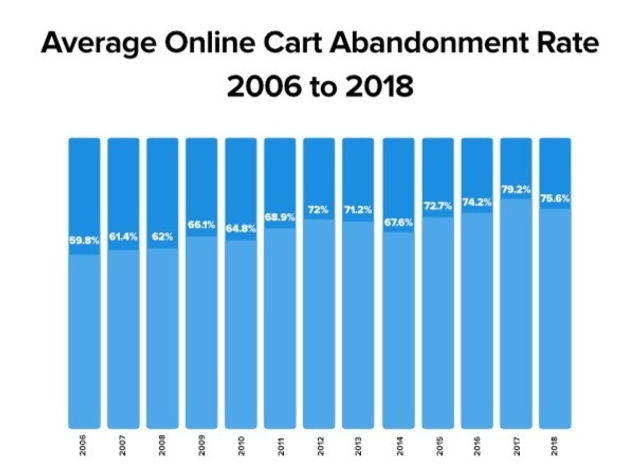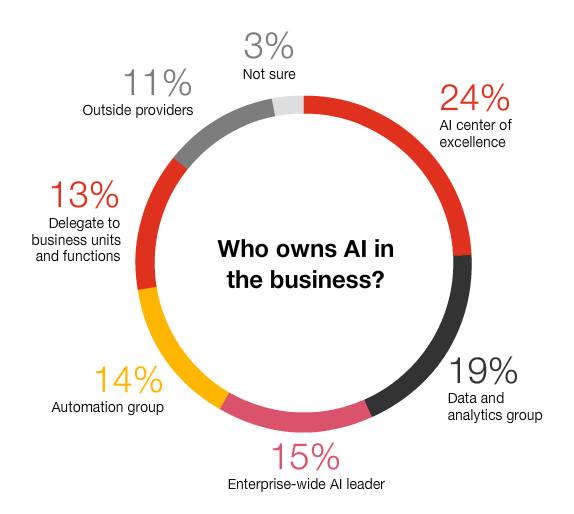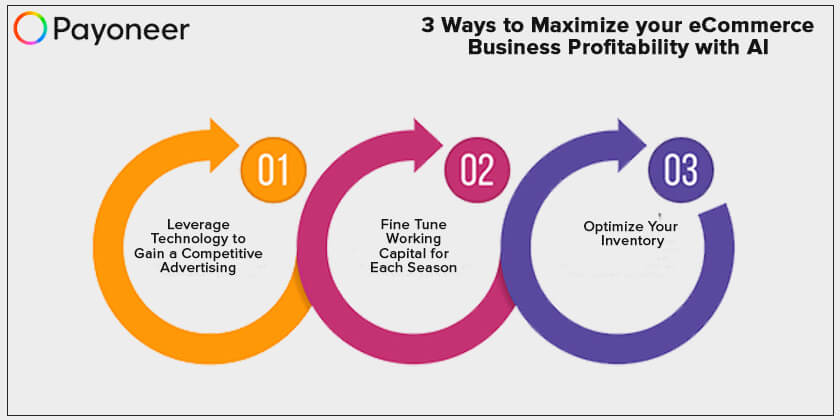
Table of Contents
Introduction
In today’s rapidly evolving digital landscape, AI has become a game-changer in the eCommerce industry. As an entrepreneur, I have discovered the immense potential AI possesses to maximize profits and create a sustainable passive income stream in eCommerce.
Defining AI in eCommerce
Artificial Intelligence (AI) refers to the ability of machines to replicate human intelligence and perform tasks that typically require human intervention. In the context of eCommerce, AI technologies such as machine learning, natural language processing, and predictive analytics have revolutionized how businesses operate, enabling them to automate processes, personalize customer experiences, and improve overall efficiency.
Exploring the impact of AI on business profitability
The integration of AI in eCommerce has been instrumental in boosting business profitability. Through AI-powered algorithms, businesses can analyze vast amounts of data to gain valuable insights into customer preferences, trends, and behaviors. This enables targeted marketing strategies, inventory optimization, and dynamic pricing, ultimately resulting in increased sales, reduced costs, and higher profit margins.
Furthermore, AI-driven chatbots and virtual assistants offer round-the-clock customer support, enhancing customer satisfaction and loyalty. By automating routine tasks, businesses can save time and resources, allowing them to focus on strategic initiatives that drive growth and profitability.
In the following sections, I will delve deeper into the specific ways AI can be leveraged to maximize profits in eCommerce, ranging from personalized product recommendations and demand forecasting to fraud detection and supply chain optimization. Join me on this journey to unlock the full potential of AI and discover how it can transform your eCommerce business into a profit-generating powerhouse.

Understanding AI in eCommerce
Artificial Intelligence (AI) has become a game-changer in various industries, particularly eCommerce. With its ability to analyze vast amounts of data and make accurate predictions, AI has transformed the way businesses operate and maximize their profits. In this post, I will provide an overview of AI technology, discuss its applications in the eCommerce industry, and highlight the benefits of implementing AI in eCommerce.
Overview of AI technology
AI technology refers to the development of intelligent machines that can perform tasks without human intervention. It involves the simulation of human intelligence in machines to make them capable of recognizing patterns, understanding natural language, and making informed decisions. In the context of eCommerce, AI is used to optimize processes, personalize customer experiences, and automate tasks such as inventory management and pricing.
AI applications in the eCommerce industry
AI has numerous applications in the eCommerce industry. One of its key applications is in customer service, where AI-powered chatbots and virtual assistants can provide instant support and answer customer queries 24/7. AI algorithms also enable personalized product recommendations based on customer preferences and browsing behavior, leading to higher conversion rates. Additionally, AI helps businesses streamline their supply chain management by predicting demand, optimizing inventory levels, and reducing wastage.
Benefits of implementing AI in eCommerce
Implementing AI in eCommerce offers several benefits. Firstly, it enhances customer experience by providing personalized recommendations, improving search accuracy, and enabling hassle-free shopping. AI also helps businesses increase efficiency through automation, reducing human errors and freeing up resources. Moreover, AI enables retailers to optimize pricing strategies and identify sales patterns, leading to better revenue management and increased profits. Lastly, AI can accurately predict customer behavior and identify potential fraud, helping businesses mitigate risks and ensure secure transactions.
By leveraging AI technology in eCommerce, businesses can revolutionize their operations, enhance customer satisfaction, and ultimately maximize profits. Embracing AI enables us to tap into its potential and unlock new opportunities in the dynamic world of eCommerce.

Leveraging AI for Customer Personalization
One of the key strategies in maximizing profits in eCommerce is leveraging AI for customer personalization. By tailoring the customer experience, businesses can drive sales, increase customer satisfaction, and foster loyalty. Personalized customer experiences have become increasingly important in today’s competitive eCommerce landscape.
The importance of personalized customer experiences
In a crowded marketplace, providing a personalized experience sets a brand apart. AI algorithms analyze vast amounts of customer data, enabling businesses to understand their customers on a deeper level. This understanding allows for highly targeted marketing campaigns, recommendations, and offers that resonate with individual preferences. By delivering relevant content and promotions, businesses can enhance customer satisfaction, increase engagement, and ultimately boost profitability.
Utilizing AI for personalized product recommendations
AI-powered recommendation engines can analyze purchase history, browsing behavior, and customer preferences to suggest tailored products. By offering personalized recommendations, businesses can increase cross-selling and upselling opportunities. This not only boosts sales but also enriches the customer shopping experience by providing relevant options based on their unique tastes and preferences.
Implementing chatbots and virtual assistants for customer support
AI-driven chatbots and virtual assistants are revolutionizing customer support in eCommerce. These intelligent systems can handle a myriad of queries, provide instant support, and offer personalized recommendations. By integrating chatbots, businesses can streamline customer service, reduce response times, and provide round-the-clock assistance, all of which contribute to improved customer satisfaction and retention.
Through leveraging AI for customer personalization, businesses can gain a competitive edge in the eCommerce industry. By delivering personalized experiences, utilizing AI-powered recommendation engines, and implementing chatbots and virtual assistants for customer support, companies can maximize profits and build lasting customer relationships.

Optimizing Inventory Management with AI
Inventory management is a critical aspect of running a successful eCommerce business. However, it can be challenging to accurately predict demand and efficiently manage stock levels. This is where AI algorithms play a crucial role in maximizing profits.
Challenges in inventory management
One of the main hurdles in inventory management is accurately forecasting customer demand. Without proper forecasting, businesses risk overstocking or running out of popular products, both of which can negatively impact profits. Additionally, manual inventory management processes are time-consuming and prone to errors.
Using AI algorithms for demand forecasting
AI algorithms have revolutionized the way businesses forecast demand. By analyzing vast amounts of historical sales data, market trends, and even external factors like weather, AI can provide highly accurate demand forecasts. These insights enable businesses to make data-driven decisions when it comes to replenishing stock and managing inventory levels.
Implementing AI-driven inventory optimization strategies
AI-powered inventory optimization strategies can help businesses minimize costs while maximizing profits. By leveraging real-time data and predictive analytics, AI algorithms can identify optimal stock levels, reorder points, and even suggest price adjustments based on demand and supply factors. This allows businesses to maintain optimal inventory levels, reduce wastage, and avoid stockouts.
AI plays a crucial role in optimizing inventory management and maximizing profits in eCommerce. By accurately forecasting demand and implementing AI-driven strategies, businesses can streamline their operations, minimize costs, and ensure they have the right products in stock at the right time.
Enhancing Pricing and Revenue Management
Pricing strategies and challenges in eCommerce
Pricing is a critical factor in eCommerce, directly impacting revenue and profits. However, finding the optimal price point can be a daunting task due to various challenges. Luckily, AI offers a solution by providing actionable insights to improve pricing strategies.
With AI algorithms, dynamic pricing becomes a breeze. These algorithms analyze customer behavior, market demand, and even competitor pricing in real-time. By leveraging this technology, I can dynamically adjust prices based on demand fluctuations, ensuring that I am always maximizing profits.
Using AI to analyze market trends and competitor pricing
Analyzing market trends and competitor pricing is another key aspect of revenue management in eCommerce. AI offers a competitive edge by quickly and accurately gathering and analyzing vast amounts of data. This enables me to make informed decisions regarding pricing and promotions, allowing my business to stay ahead of the competition.
By utilizing AI algorithms, I can identify trends, such as seasonality or customer preferences, that affect pricing. Moreover, I can effortlessly monitor competitor pricing, ensuring that my pricing strategy remains competitive while still maximizing profitability.
integrating AI into my eCommerce strategy has allowed me to enhance pricing and revenue management significantly. By utilizing dynamic pricing and leveraging AI to analyze market trends and competitor pricing, I can make informed decisions that maximize my profits effortlessly. With AI as my ally, I am confident in my ability to stay competitive and thrive in the ever-changing world of eCommerce.
Streamlining Supply Chain Operations
In the world of eCommerce, having an efficient supply chain is crucial to maximizing profits. With the help of AI, businesses can streamline their supply chain operations and achieve new levels of productivity. AI technology plays a significant role in optimizing the supply chain, from predicting and preventing disruptions to enhancing logistics and warehouse management.
The role of AI in supply chain optimization
AI algorithms are capable of analyzing vast amounts of data and identifying patterns that humans might overlook. This helps businesses make more accurate demand forecasts, leading to improved inventory management. AI can also automate the process of demand planning, taking into account various factors such as market trends, seasonality, and customer behavior. By leveraging AI in supply chain optimization, businesses can reduce costs and better align their inventory with customer demand, ultimately boosting profitability.
Using AI to predict and prevent supply chain disruptions
Supply chain disruptions can be costly and time-consuming. AI can help businesses predict and prevent such disruptions by utilizing real-time data and historical analysis. Through machine learning algorithms, AI can identify potential risks and offer proactive solutions. For example, AI can analyze weather patterns and transportation data to predict delays and reroute shipments accordingly. By proactively addressing potential disruptions, businesses can minimize the impact on customer satisfaction and maintain a smooth and uninterrupted supply chain.
Implementing AI in logistics and warehouse management
AI technology can revolutionize logistics and warehouse management, improving efficiency and reducing errors. AI-based systems can optimize delivery routes, taking into account factors such as traffic and fuel costs, ensuring timely and cost-effective delivery. Furthermore, AI can automate inventory management in warehouses, ensuring optimal stock levels and reducing the risk of stockouts or overstocking. By implementing AI in logistics and warehouse management, businesses can reduce costs and improve customer satisfaction.
With the power of AI, businesses can streamline their supply chain operations and achieve new levels of profitability. Leveraging AI in supply chain optimization allows businesses to make more accurate demand forecasts, identify and prevent potential disruptions, and optimize logistics and warehouse management. By embracing AI technology, businesses can stay competitive in the fast-paced world of eCommerce and drive successful outcomes.

Mitigating Fraud and Ensuring Security
In the ever-evolving realm of eCommerce, ensuring the security of transactions and protecting businesses from fraudulent activities has become a top priority. This is where artificial intelligence (AI) steps in to safeguard profits and foster trust among consumers. Let me share how implementing AI in fraud prevention can help maximize your profits while ensuring a secure environment for your eCommerce operations.
Identifying fraudulent activities with AI
By employing AI algorithms and machine learning techniques, businesses can proactively identify fraudulent activities in real-time. AI can learn from patterns and anomalies, analyzing vast amounts of data to detect even the most sophisticated fraudulent attempts. It can scrutinize transaction activity, customer behavior, and account information, flagging suspicious actions such as unusual spending patterns or multiple failed payment attempts, enabling swift prevention and resolution.
Enhancing payment security with AI algorithms
AI-powered algorithms provide an added layer of security to payment processes. They can evaluate the risk associated with each transaction and detect potential fraud, minimizing chargebacks and false positives. AI can identify legitimate customers and assess the validity of their information, reducing the likelihood of unauthorized transactions and ensuring secure payments occur seamlessly.
Implementing AI-based fraud prevention measures
To maximize profits and mitigate fraud, integrating AI-based fraud prevention measures is crucial. Machine learning algorithms can continuously adapt and enhance fraud detection procedures, automatically updating strategies to stay ahead of the latest fraud tactics. AI can instantly identify emerging trends and suspicious patterns, empowering businesses to take preventive action and minimize the financial impact of fraud.
By harnessing the power of AI in eCommerce, businesses can protect against fraudulent activities, providing a secure shopping experience for customers while maximizing profits. Embracing AI-based fraud prevention measures and enhancing payment security can help drive business growth and establish a trustworthy reputation in the competitive world of online commerce.
Conclusion
In conclusion, the future of AI in eCommerce holds immense potential for maximizing profits and generating passive income. The integration of artificial intelligence has revolutionized the way businesses operate in the online marketplace, providing numerous opportunities for growth and success.
The future of AI in eCommerce
As technology continues to advance at an unprecedented rate, AI is poised to become an integral component of the eCommerce industry. From personalized product recommendations to chatbots that enhance customer experience, AI has the ability to streamline operations, optimize marketing strategies, and increase sales.
Maximizing profits through AI-driven strategies
By leveraging AI, businesses can unlock valuable insights into customer behavior and preferences. This data can then be used to develop targeted marketing campaigns and improve user engagement. Additionally, AI-powered pricing algorithms can help optimize pricing strategies, ensuring maximum profitability while attracting and retaining customers.
Incorporating AI into inventory management processes also enables businesses to accurately forecast demand, reducing costs by minimizing overstocking and understocking issues. Furthermore, AI-driven analytics provide real-time data on consumer trends and market dynamics, enabling businesses to make informed decisions and stay one step ahead of the competition.
In conclusion, the future of AI in eCommerce is incredibly promising. By embracing AI-driven strategies and leveraging its capabilities, businesses can maximize profits, generate passive income, and thrive in the competitive online marketplace. So why wait? Start exploring the possibilities of AI in eCommerce today.







